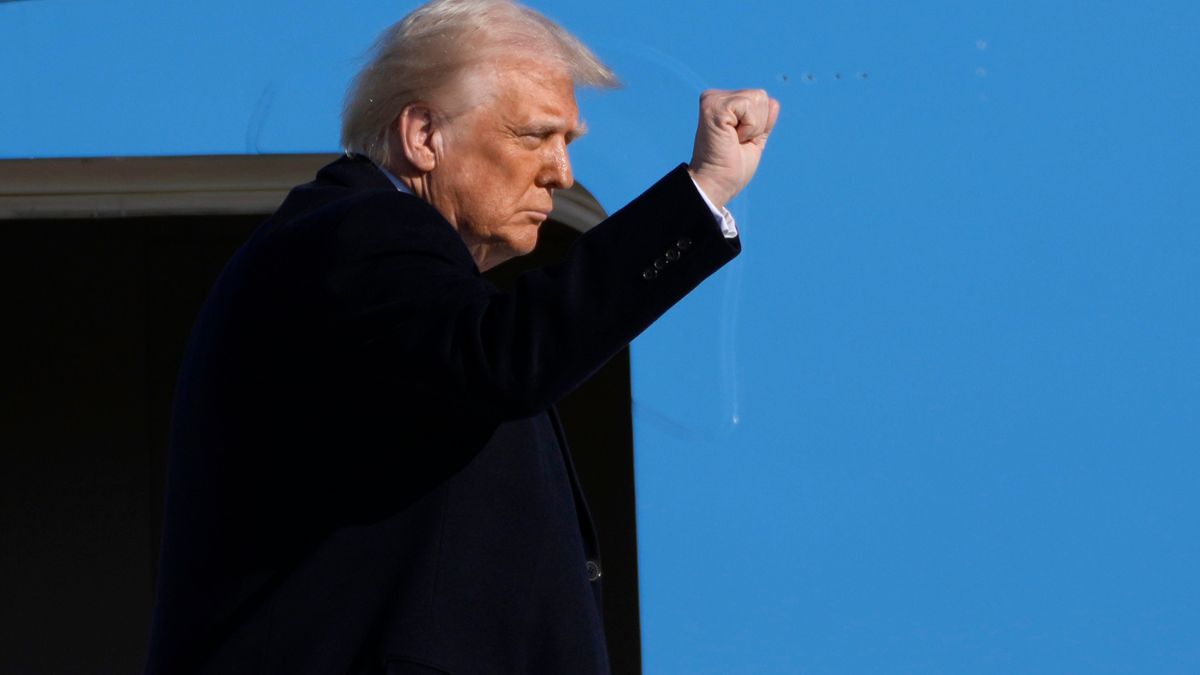US President Donald Trump announced on Monday that tariffs on Canada and Mexico will begin next month, ending a temporary suspension. The import taxes could slow economic growth and increase inflation.
“We’re on time with the tariffs, and it seems like that’s moving along very rapidly,” Trump said.
Trump made the statement at a White House news conference with French President Emmanuel Macron while answering a specific question about the taxes to be charged on Mexico and Canada.
Both Canada and Mexico are America’s two largest trading partners.
The US president also emphasised more broadly that his intended “reciprocal” tariffs were on schedule to begin as soon as April.
“The tariffs are going forward on time, on schedule,” Trump said.
Trump has claimed that other countries charge unfair import taxes that have come at the expense of domestic manufacturing and jobs. His near-constant threats of tariffs have already raised concerns among businesses and consumers about an economic slowdown and accelerating inflation. However, Trump claims that the import taxes would ultimately generate revenues to reduce the federal budget deficit and create new jobs for workers.
“Our country will be extremely liquid and rich again,” Trump said.
Most economists say the cost of the taxes could largely be borne by consumers, retailers and manufacturers, such as auto companies that source globally and rely on raw materials like steel and aluminium, which Trump is already, separately, tariffing at 25 per cent.
Impact Shorts
More ShortsCompanies like Walmart have warned about uncertainty, while the University of Michigan’s latest consumer sentiment index plunged by roughly 10 per cent over the past month, in part due to fears about worsening tariffs and inflation. In the 2024 presidential election, voters backed Trump on the belief that he could curb inflation, which had spiked to a four-decade high in the aftermath of the coronavirus pandemic during President Joe Biden’s time in office.
However, Trump has persistently threatened tariffs and maintained those calls, even as Macron, standing beside him, had previously suggested that talks on trade had produced some common ground.
“We want to make a sincere commitment towards fair competition, where we have smooth trade and more investments,” Macron said at the news conference, according to a translation of his French remarks.
Macron said the idea is to help the US and Europe both prosper, adding that further talks would be carried out by their respective teams to flesh out their ideas.
Investors, businesses and the broader public are still trying to determine whether Trump is merely threatening tariffs as a negotiating tool or if he sincerely supports the tax hikes as a way to offset his planned income tax cuts.
Trump already plans to remove the exemptions on his 2018 steel and aluminium tariffs, taxing imports of both metals at 25 per cent.
Despite talks between the Trump administration and Canadian and Mexican officials, the US president signalled on Monday that he would end the 30-day suspension of tariffs that were initially set to take effect in February. Trump plans to tax imports from Mexico at 25 per cent, as well as most goods from Canada, with energy products such as Canadian oil and electricity being tariffed at a lower 10 per cent.
Trump is imposing tariffs on Canadian and Mexican goods with the stated goal of pressuring them to do more to address illegal immigration and the smuggling of illicit drugs such as fentanyl. While relatively little fentanyl comes from Canada, the country announced a czar to address the issue and appease Trump, in addition to existing measures. Mexico has relocated members of its National Guard to the border with the United States, also in addition to existing measures.
Trump also plans to impose new tariffs to match the rates charged by other countries. Set to begin as soon as April, the tariffs could be higher than what other countries would charge, as subsidies, regulatory barriers and the value-added tax—akin to a sales tax common in Europe—would be included in the calculations.
The possibility of retaliatory tariffs planned by Canada, Mexico and Europe could lead to a broader trade conflict that could sabotage growth. In February, the Yale University Budget Lab estimated that the Canadian and Mexican tariffs could depress average US incomes by $1,170 to $1,245 a year.
With inputs from AP.
)